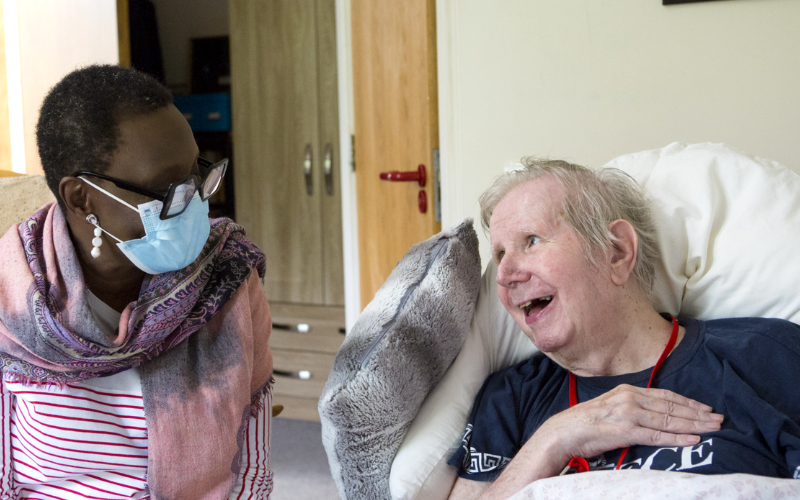What are the different types of care?

If you’ve not experienced older people's care before, we understand it can be a little overwhelming. That’s why we’ve created a hub of information to help you navigate this period in your life, or a loved one’s life.
Care provided by care homes
- Residential care - this is more like living in a hotel, with the reassurance of 24-hour care and support being available when needed.
- Nursing care - specialist care is available 24-hours a day for those with long-term illness or disability where more complex medical support is required.
- Dementia care - specialist dementia care is available in purpose-built facilities, with extra support available to help reduce symptoms of dementia, like music therapy.
- Dementia nursing care - specialist support for people living with dementia who may also live with a long-term illness or disability, where more complex medical support is required.
- Respite care - a temporary living short-term stay arrangement to give both carers, and those being cared for, a bit of time off and a chance to recharge their batteries.
Some homes will offer a mix of care available like residential dementia and dementia nursing care.
To find out more about MHA's care homes, please visit our care home page.
Care available at home
Care at home is also known as domiciliary care, home care, or home help and involves a paid carer coming to your home to help with small everyday tasks.
Home care is paid for by the hour. It is a flexible option and is sometimes only on a temporary basis, like after a fall whilst you recover, for example. You may only need someone to come and help for an hour every day or you might need live-in support.
You might also need to consider home adaptations or household gadgets or equipment so getting around the house and completing tasks is much easier for you.
Retirement living schemes offer the perfect mix of the reassurance of having access to care and support, when needed, as well as remaining independent within a community of like-minded individuals. Learn more about MHA's retirement housing with care schemes.
When do you know if you need care at home?
You might want to consider care at home if:
- You're finding it difficult to cope with daily routines and getting out of the house
- You are not ready to move into a care home
- You can still get around and it's safe for you to live in.
What support does homecare provide?
A paid carer can visit you at home to help you with all kinds of things including:
- Getting out of bed in the morning
- Preparing meals and drinks
- Using the toilet
- Remembering to take your medicines
- Doing your shopping
- Washing
- Getting dressed
- Collecting prescriptions or your pension
- Take you out
- Getting ready for bed.
Home help
Home help is slightly different from homecare as they will perform day-to-day domestic tasks that you may need a helping hand with such as:
- Cleaning
- Doing the washing up
- Doing the laundry and putting clean sheets on the bed
- Gardening.
You might want a mix of home help and homecare depending on your needs.
Paying for care at home
Sometimes, depending on what benefits you already claim, the council might pay towards your homecare. You will need to complete a Care Needs Assessment.
If you're eligible for care at home, your local council can arrange the homecare for you.
If you're not eligible, the council must still give you free advice about other alternatives to get help in your local community.
The council will work out how much you need to pay through a Financial Means Test assessment.
If the council is paying for some or all of your homecare, they must give you a care and support plan.
Benefits that can help you with homecare
You might be eligible for benefits such as Attendance Allowance and Personal Independence Payments to help you cover the costs for your care. These aren’t means-tested.
Find out how to apply for benefits for under-65s and benefits for over-65s.
Page last updated: July 2023.
MHA in your community
Find the care home, retirement community, or support group that’s right for you

